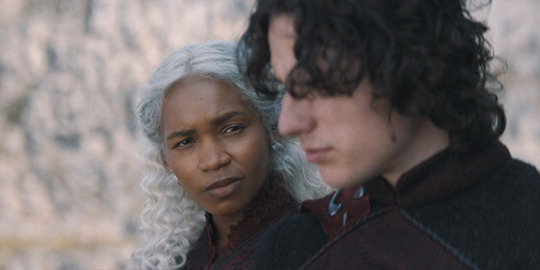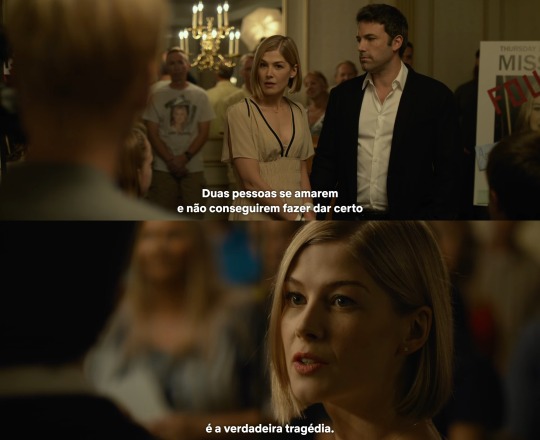#the Exemplars
Note
Halcyon Hero opinion!
Monarch
King Tut
Would it be cheating to ask for all of POLAR? 😅
anon i already did Copycat and Xolaris but i will Absolutely do the rest of POLAR in a bit😊💖💖
Monarch....

King Tut!

#yeah this is a monarch bully and hate zone so if you're a monarch stan..... lmaooooo#anyways i think king tut is neat and my friend likes him so he's alright by me :]#admin morgan#ask and answered#the exemplars
2 notes
·
View notes
Text
One thing that I feel is really interesting and often forgotten about Essek is that fundamentally, his characterization has been from the start based upon his desperation for external perspectives and connection, which, along with much of his narrative and mechanical positioning, means that he actually has an extraordinary and almost (but not actually, as I'll show) counterintuitive capacity for both growth and trust.
(Buckle in. This is a long one.)
In particular, I would argue, knowing now that many places where the plot touches Ludinus have long been marked for connecting back into the current plot, that he was quite possibly built as a prime candidate for radicalization by the Ruby Vanguard. He felt isolated from his culture, he was desperate for other connection, and he was certainly of the type to believe he was too smart to be drawn into such a thing, given his initial belief that he could control the situation and the fallout. If things had gone any other way, he easily could've been on the other side by now.
As such, he has been hallmarked by being fairly open to suggestion, perhaps for this reason, but the thing about that kind of trait is that it is both how people are radicalized and deradicalized. This is certainly true of Essek, who experienced genuine kindness and quite frankly strangeness from the Nein and was able to move from the isolation the Assembly had engendered to meaningful and genuine connection, largely propelled by his own internal reflection. By the time Nein are aware of his crimes, he's already begun to express regret to an extent and, furthermore, doubt in the Assembly, including explicitly drawing a line against Ludinus, even in a position where he was on his own and probably quite vulnerable.
Similarly, when the Nein reach the Vurmas Outpost some weeks later, he has moved from regret for the position he's ended up carrying a heavy remorse. This makes sense! He's fairly introspective, seems used to spending a lot of time in his own head, and was left with plenty to mull over. It's not some kind of retcon for him to have progressed well past where the Nein left him; it just means he's an active participant in the world who has done his own work in the meantime.
This is another interesting aspect to him. I've talked about this a bit before but I cannot find the post so I'll recap here: antagonists in D&D have significantly more agency than allied NPCs. Antagonists are active forces, against which the party is meant to struggle; allies are meant to support the PCs, which means they tend to be more passive in both their actions and their character growth. Essek was both built as an antagonist, in a position that gives him significant agency, and also was then given significant opportunity to grow specifically to act as a narrative mirror for Caleb's arc. Even when he becomes a more traditional D&D ally, he still retains much of that, though he occupies a supporting role.
I believe that this is especially true because of the nature of Caleb's arc, which I've already written on; the tl;dr of this post is that Caleb is both convinced that he is permanently ruined and also desperate to prove that change is possible. Essek is that proof, because he is simply the character in a position to do so. But this also means that his propensity for introspection and openness is accentuated! He has to do the legwork on his own, for the most part, because that's where he is in the meantime.
But he still ends the campaign necessarily constricted; he is under significant scrutiny, he's at risk from the Assembly, and he goes on the run fairly soon after the story ends. He spends most of the final arc anxious and paranoid, which is valid given the crushing reality of his situation. It would be very easy to extrapolate that seven years into this reality, he would be insular, closed off, and suspicious of strangers, even in spite of the lessons he's learned from the Nein and their long term exposure.
So seeing his openness and lightness now is surprising, but at the same time, given this combination of factors in his position in the narrative over time and his defining traits, it's not by any means unreasonable.
But one thing that I found so delightful is how much trust he exhibits, which is obviously a wild thing to say about Essek in particular, given much of what he learns is both earning and offering trust, which was something he says explicitly in 2x124 that he's never really experienced: "I've never really been trusted and so I did not trust." It makes up much of the progression of his relationship with Caleb, and the trust that he is offered by the Nein in walking off the ship is the impetus he needs to grow.
But I think it's easy to talk about trust when it comes to people who have proven themselves to you or to whom you've ingratiated yourself, and that's really the most we can say about Essek by the time he leaves the Blooming Grove. There is this sense in a lot of discussion of trust (not solely in this fandom) that it is only related to either naivete or love, but there's far more to it. Trust at its best is deliberate—cultivating an openness to the world at large is a great way to combat cynicism and beget connection instead. It allows a person to maintain curiosity and be open to experience, but it can be incredibly difficult to hold onto.
It is clear that the Essek we meet now is a very pointedly and intentionally trusting individual. He trusts Caleb and by extension Caleb's trust in Keyleth, as he shows up and picks up a group of strangers from a foreign military encampment and walks in without issue. He trusts the Hells to follow his lead moving through Zadash and to exhibit enough discretion so as to avoid bringing suspicion upon all of them. He trusts that Astrid will respond well to his entrance, but he also trusts himself and the Hells enough to execute a back-up plan in the case that she doesn't. In the end, he even trusts them enough to give them his name and identity.
He doesn't scan as someone who has spent half a dozen years living like a prey animal, afraid of any shadow he runs across in an alley, withdrawn into himself and an insular family, which would've been an easy route for him to take. He scans as someone who has learned the kind of trust borne of learned confidence and a trained eye for good will and kindness, which are crucial weapons one would need for staving off cynicism in his circumstances—as if he has survived thanks more to connection and kindness than paranoia and isolation. (If we want to be saccharine about it, he scans quite poignantly as a member of the Mighty Nein.)
So it is easy to imagine this trust and openness as a natural progression of his initial search for perspectives external to his own cultural knowledge. Though he makes those first connections with the Assembly to try to vindicate his personal hypotheses, he finds in them exposure to the deepest corruption among Exandrian mortals, which could've—and did, for a time—turned him further down that same dark path.
But it's also this same openness to exposure from the wider world that allows the Nein to influence him for the better, and in spite of the challenges he's certainly faced simply surviving over the past seven years, he seems to have held onto this openness enough to move through the world with self-assurance and a willingness to extend the kinds of trust and good will that he has been shown.
(I would be remiss not to mention that I was reminded about my thoughts on this by this lovely post from sky-scribbles and their use in the tags of 'light' to describe Essek's demeanor this episode, which is really such an apt word for it.)
#something something hope is a weapon hope is a discipline hope is a garden to cultivate!!!#HE'S SO GOOD HE IS TRULY EXEMPLAR OF THE WHOLE PHILOSOPHY OF THE NEIN AND I DO NOT THINK THAT'S AN ACCIDENT#truly just like. enormous proponent of letting trust and curiosity into your heart regardless of the horrors.#it's hard and it makes you more vulnerable and sometimes it hurts so so much but it will also save your fucking life!#cr spoilers#critical role#essek thelyss#cr meta#I was gonna apologize for the length but I'm not sorry. I'm also not sorry for being insane about him but he's so special to me.#head in my hands he's so GOOD HE'S BEST BOI! GUIDING LIGHT NORTH STAR!!! LOOK AT HIM!!!#also truly if i had two nickels for a span of time with no essek sightings where I wrote a lot of fic#with deliberate personal acknowledgment that I was writing some pretty maximal arcs for him in terms of character growth#and then end up getting essek for half an episode and having to go OH WE'RE GOING THAT FAR ACTUALLY. FUCKING INCREDIBLE.#yanno. two nickels. but good lord I am thriving that it's happened twice#augh this is ONE of the pieces I need to write this week. we're not gonna talk about it
343 notes
·
View notes
Text
Es ist mal wieder Montag, und während ich auf der Arbeit einen handwerklichen Nervenzusammenbruch schiebe werde ich an der Familienfront wohl demnächst mit meiner Tante eines dieser leidlichen klärenden Gespräche führen müssen, die schon in Gedanken so unangenehm sind dass totaler Kontaktabbruch gerade doch echt verlockend klingt. Nothing like explaining your supposed lifestyle choices to the headstrong matriarch of the family. Bitte überfahrt mich einfach.
Der Akkordeonspieler nimmt seine Rolle als Ersatzfamilie ernst und fragt, ob er mich zu meiner Tante fahren soll- einfach, weil nach so einem Gespräch drei Stunden einsame Rückfahrt 'ne räudige Aussicht sind. Die roundabout sieben Stunden Fahrzeit die dabei für ihn rauskommen würden klingen aber genauso räudig. Ich bin mit der Gesamtsituation überfordert.
#er hat mir n exemplar von die drei musketiere in die hand gedrückt#oh boy.#grundüberforderung in allen lebensbereichen
176 notes
·
View notes
Text

Exemplars / Bidder Street, London, England.
165 notes
·
View notes
Text










FINALLY. AFTER LIKE. A YEAR I FINISHED MY OCS REFS. YAYYYYYY
anyway woe the Epoch Exemplars be upon ye
#EEs (ocs)#Epoch Exemplars#The epoch exemplars#Ocs#vincent micheals#Vincent EEs#Rosemary contrary#Rosemary EEs#Izzy O’Kelly#Izzy EEs#Patt Fleischer#Patt EEs#Veronica James#Veronica EEs#Mitsuki kiyomizu#Mitsuki EEs#alex reed#alex ees#original characters#magical girl oc#superhero oc#original character#original series#oc art#my ocs#oc
109 notes
·
View notes
Text



富察·容音 Fuca Rongyin from
延禧攻略 The Story of Yanxi Palace (2018)
TV APPRECIATION WEEK 2024
— free choice: favourite chinese period drama character
#tvweek24#the story of yanxi palace#延禧攻略#cdrama#cdramagifs#cdramaedit#cdramanet#tvedit#dailyasiandramas#asiancentral#empress fuca#perioddramaedit#perioddramasource#onlyperioddramas#periodedit#gifhistorical#秦岚#qin lan#my edits#*#this was entirely self indulgent but it felt so strange that i've been giffing my other interests all week#when she’s literally also one of my absolute favs everrrr AND i've been in a qin lan relapse for the past 3 months straight#it feels strange in general that this blog is a really segregated part of my interests that is very western and (mostly) very white#so anyway. here to remedy that#rongyin is one of THE kindest characters I have ever known—in a genre that revels in demonising its women#can you imagine the strength that it takes? to choose to be kind every single day in a world that’s constantly punishing your kindness?#it’s so refreshing to see it portrayed not as ignorance or weakness but as strength. 我嘅白月光😭😭#but then. her internal conflict with the impossible expectations of femininity placed on her (the empress as the exemplar woman)#makes me wanna tear my hair out!!!! god!!! all that love and yearning that had nowhere to go!!!!
56 notes
·
View notes
Text
me, to myself: I've been ranting for over 20 years about my gripes with the Peter Jackson LOTR movies and especially their tremendously influential (mis)handling of Gondor, Aragorn, the legacy of Númenor, Elrond, etc, and been consistently annoyed by how much their fans insist on uncritical glorification while also trying to present themselves as fandom underdogs who must defend these inescapable behemoths from the smallest slight. Maybe I should try to focus on other things and put them behind me.
[news: Jackson is making a new LOTR project involving Aragorn and Gollum]
me: alternately, maybe I will never be free
#on some level hating the film treatment of númenórean [everything] is enjoyable for me#i mean it would be much more enjoyable if the films' handling of númenórean legacy was ... actually good. but i'm a natural hater it's okay#but the fandom's hair trigger defensiveness of them as exemplars of fidelity to which all other adaptations must be unfavorably compared?#not enjoyable! and now it's like hmm i wonder which of my faves will get sacrificed to the glorification of aragorn or legolas this time!#given that my favorite tolkien characters of all time are faramir and denethor the track record is not great!#though maybe they'll be less racist this time around (though again. the track record...)#anghraine rants#pj critical#anghraine babbles#legendarium blogging#legendarium fanwank
97 notes
·
View notes
Text

Jinaea Reed, Cleric of Erastil -- sketch for a pf2e Kingmaker campaign I'm playing in!
#she's got rogue dedication through ancient elf which should be fun!#i know she looks more in line with a ranger and i considered that buuuut i wanted to make sure the party had some solid healing#we've got a uhh Wizard an Exemplar and a Fighter besides#ljon's art#ljonsketch#art#pathfinder#pathfinder 2e#pf2e#ttrpg#ttrpg art#character design#kingmaker
28 notes
·
View notes
Text


Hear me out, I am not saying anything in particular, yet I am saying some matters which I may elaborate upon in times to come.
#however there are matters i wish to say at this moment for instance:#denis mine guy i know you do not wish to adapt children of dune but what if you were to film a prequel#and cast our lad harry as a young leto and while you are at it you might as well get our lass bethany as lady jessica#i have a title for you denis; tis The Red Duke. would be much and more comely#we could behold him reigning with supreme strategy and diplomacy upon caladan commanding fervent loyalty#splattering charisma across the ocean falling head over heals for jess#what splendid exemplar of comeliness wit and heart#'tis excellent depiction of:#doomed by the narrative#i shall ne'er cease my prattling on the matter#the fulminations of viserya#how shall i deal#jacaerys targaryen#baela targaryen#hotd#—motion picture#dune (2021-2024)#leto atreides#lady jessica#< mine precious requireth a tag
22 notes
·
View notes
Note
Craftman and Uthanizer for the opinion bingo please?
-⭐
of course anon!💖
Craftman :))

Uthanizer!! :))

#back to answering asks bc if i think about copycat being on here i'll delete my blog and eat my computer#anyways i love craftman so much he's such a fun guy <33#and dr. key............. inwould literally [REDACTED] [REDACTED] [REDACTED] [REDACTED]#i love when women in stem....<333#ask and answered#admin morgan#the exemplars
1 note
·
View note
Text
Honestly, obsessed with the fact that there is a massive fucking tree growing both at the sites of the beginning and end of the Calamity—a horrific reminder of death at the beginning, and a promise of life at the end.
Lord of the Rings ass worldbuilding, and it's INCREDIBLE.
#as an arbor exemplar stan. this is for me in particular.#critical role#cr spoilers#also for the record the sun tree is also a calamity remnant but it's less pointedly symbolic so it is not mentioned here.#do not @ me.
796 notes
·
View notes
Text



having fun. messily!
#body horror#darkest dungeon 2#dd2#darkest dungeon#dd#the narrator#the academic#the protege#the protégé#exemplar#doodles#my art#i dont usually even color anything in my sketchbook but i got a blue grey marker and went to town. you know how it is
103 notes
·
View notes
Text
IS THAT TWIG THE FUTURE ARBOR EXEMPLAR??????
#The Wildmother#critical role#cr spoilers#critical role spoilers#calamity downfall#downfall#Arbor Exemplar
26 notes
·
View notes
Text

Exemplars / Phoenicia, New York.
73 notes
·
View notes
Text
Pararchetrope -> Exemplar
So in my archetropy essays I've been using "patatrope" (from paratype) to mean "similar trope/archetype/motif" and "pararchetrope" to mean "character that feels like a paratype due to fitting an archetype".
But I'll be the first to admit "pararchetrope" is an awkward mouthful to pronounce, and I was hoping I or someone else might stumble onto something better.
How about the word "exemplar"? Even in it's completely mundane current meaning, it fits the bill. Something serving as an example or model of a particular concept.
To me, Pearl, Gawain and both Sir Carrots are exemplars of the paladin archetype, and thus activate archetrope feelings.
63 notes
·
View notes
